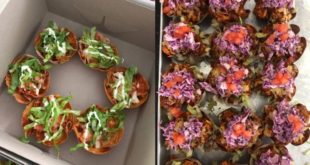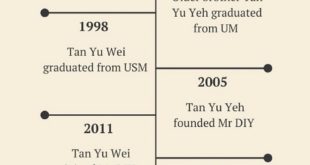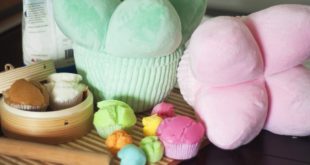Author’s Blurb: When I was in college, I did ballroom dancing for a bit. I used to just dance in my Converse, as did most of my peers in their regular shoes as well. Because only so few of us did it professionally, we didn’t think it was terribly important that we bought proper dancing shoes.
I did more walking than dancing of course, which was what initially prompted me to buy a proper pair of walking shoes to commute from my dorm to classes.
Then it struck me that if I needed comfortable shoes for just walking, it was no wonder that active ballroom dancers needed proper dancing shoes.
30 years ago, when dancing became popular in Malaysia, this realisation also hit Chook Wah Sun, founder of San Lee Shoes.

He found that walking shoes not only hurt the feet while dancing, but they’re not as soft and flexible on the feet as compared to dancing shoes.
Noticing A Demand In The Market
“Dance shoes are soft and designed in such a way that they support the dancer’s feet well so accidents on the dance floor can be avoided especially when executing complex moves,” Chook Heng Mun explained in an interview with FMT.
Moreover, dancing shoes at the time were not easily accessible back then. Heng Mun shared with Vulcan Post that dancers would usually get their shoes imported from the UK which cost them around RM300 for just a pair 30 years ago.
Chook Heng Mun is the current proprietor of San Lee Shoes, whom he inherited from his father, Wah Sun.

Wah Sun started making shoes when he was 13. He was an apprentice to a cobbler in Ipoh, and left for KL to work at a shoe factory after several years of experience, he shared in a press release on his site.
It was where he also met his wife, whom he started San Lee Shoes with in a small shop in Cheras.

Prior to dance shoes, San Lee had only been making casual walking shoes back then.
“One day, a customer came in and asked whether we could make a pair of dance shoes. My father received the order and they showed us some samples,” Heng Mun shared with Vulcan Post.
“My father even signed up for some dancing class to get well known of it and keep modifying the shoes to be more comfortable,” he recalled.
What better way to understand your customers’ needs than putting yourself in their shoes, right?
Customising To The Core
Back then, because people had to get their dancing shoes from overseas, they didn’t have the luxury of being able to get their measurements right, or to try them on for size before purchasing them. This was what Wah Sun wanted to change.
“Malaysians generally have wider feet around the instep area and more spread-out toes due to our hot, humid climate. And because we seldom wear socks, our feet tend to grow more freely,” Wah Sun shared in an interview with The Star.
Hence, Wah Sun decided to include dancers in his shoe-making business and afford them the convenience of customising their shoes from scratch.
San Lee Shoes customises latin, ballroom, salsa, jazz and tango shoes for men and women alongside wedding shoes, office shoes, dinner shoes, walking shoes, and even shoes for people with foot problems.

There isn’t a fixed price on their products since it depends on the customisation, but dancing shoes usually cost about RM160 whereas walking shoes cost about RM200.
It’s almost half the price of what their customers would have to pay for if they ordered their shoes from overseas.
Although they started their shoe-making business to give local dancers the convenience of customising their shoes, they have customers overseas too.
They’ve had customers from Singapore, Australia, Indonesia, the Philippines, the US and Europe.
Customers choose the colours, design and material they want before having their feet measured.
“We also require the customer to come for fitting first before the shoes are 100% done. This is to ensure that the shoes fit the customer well. The whole process might take about 2 weeks,” Heng Mun explained.
Wah Sun also shared with The Star previously that when the shoes do not fit their customer, they will redo the shoes until it does.
Is There Still A Market For Ballroom Dancing Shoes?
Though ballroom dancing was popular in the past, it is less so now. These days, Malaysians are more into fitness dancing like Zumba and more contemporary dancing like hip-hop, B-boying, K-pop, etc. Oftentimes, people just wear sneakers to dance in these genres.
Moreover, with MCO happening now, people who still do ballroom dancing won’t be dancing as much for the time being.
Hence, their focus for now is to make shoes for those who can’t wear commercial shoes such as diabetes patients, people with two different feet size and people with bunion feet.
Heng Mun shared with Vulcan Post that their revenue has actually dropped by 70% in this pandemic. They have also downsized their staff of 4 to just 2 aside from Heng Mun’s wife, mother and sister.

However, the business is still here after decades for a reason in spite of their niche market, which is most likely their affordability and specialty in customisation.
Then again, their walking shoes, especially those are that fully leather, can last more than 8 years, which is a long time until the user wants to get it replaced.
So not only is their business very niche, but it’s also not a fast-paced one, which can be quite a risk especially at times like these. Moreover, they’re not a monopoly.
But if they’re able to keep adapting their business to the dancing trends of today, like finding a way to include contemporary dancers into their target market, there may be a higher chance for them to survive for more decades.
Bottom Line: Being a business with such a niche, they’re no doubt valuable to their target audience. Trends may change, and one could question the lasting culture of ballroom dancing in Malaysia and across the world, but the fact that San Lee has found ways to adapt even now is a promising sign for continuity.
- You can learn more about San Lee Shoes here.
- You can learn more about other startups we’ve written about here.
Featured Image Credit: Chook Heng Mun, current proprietor of San Lee Shoes



